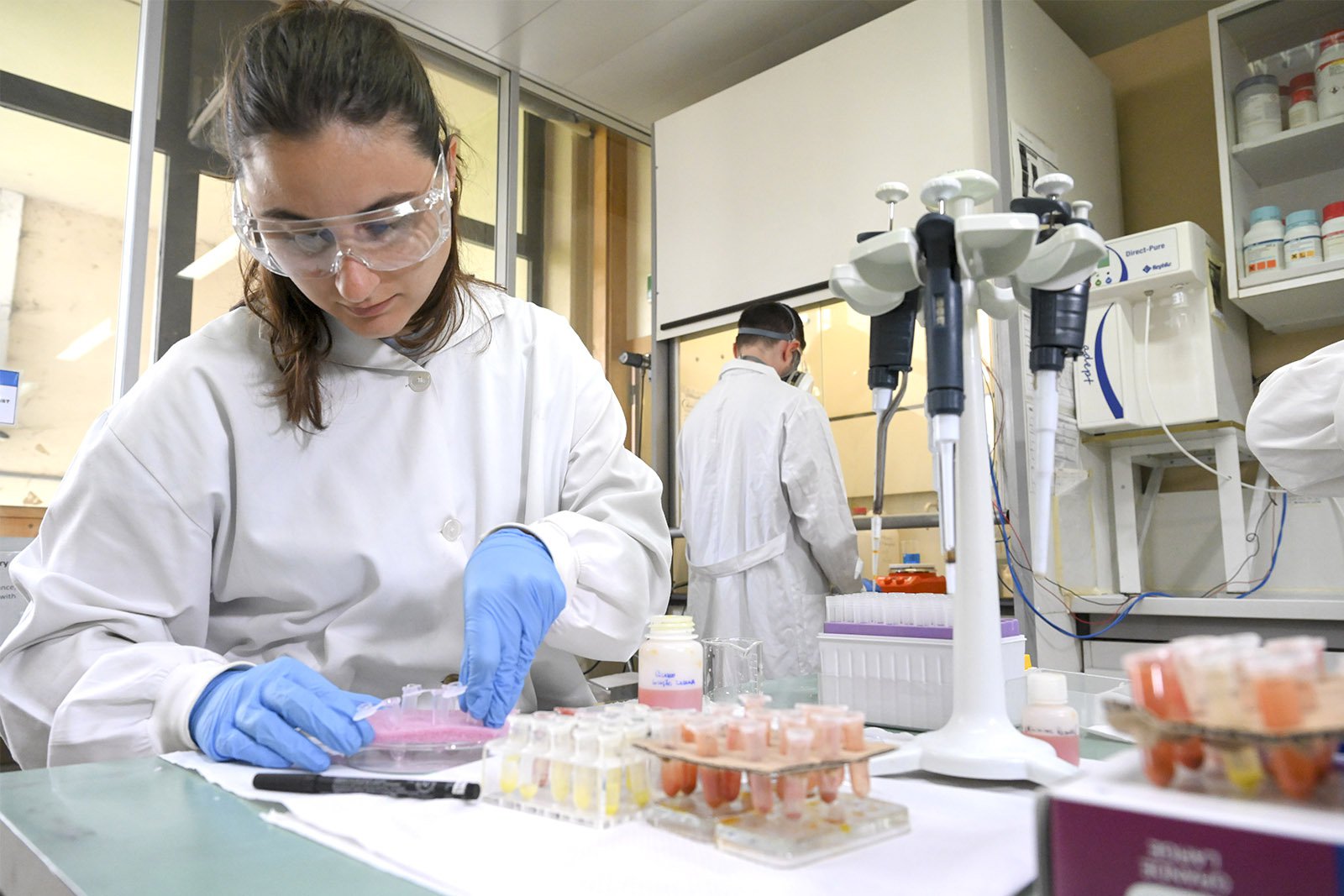If education at U.Porto is defined by its diversity, openness and innovation, all of these characteristics are evident in the work produced by our 48 scientific units (R&D Units), some of which are among the most advanced and prestigious R&D units in Portugal, in different fields of knowledge.
Introduction to Research and Development Units
List of Research and Development Units
- Centre for Studies in Architecture and Urbanism (CEAU)
- Centre for English, Translation, and Anglo-Portuguese Studies (CETAPS)
- Research Centre for Territory, Transports and Environment (CITTA)
- Transdisciplinary Research Centre Culture, Space and Memory (CITCEM)
- Institute of Philosophy of the University of Porto (IF)
- Research Institute in Art, Design and Society (i2ADS)
- Research Institute for Design, Media and Culture (ID+)
- Margarida Losa Institute for Comparative Literature (ILC)
- Centre of African Studies of the University of Porto (CEAUP)
- Transport Phenomena Research Centre (CEFT)
- Research Centre for Systems and Technologies (SYSTEC)
- Centre for Natural Resources and Environment (CERENA)
- Institute for Systems and Computer Engineering, Technology and Science (INESC TEC)
- Institute of R&D in Structures and Construction (CONSTRUCT)
- Instituto de Telecomunicações – Porto (IT Porto)
- Associate Laboratory of Energy, Transports and Aeronautics (LAETA)
- Laboratory for Process Engineering, Environment, Biotechnology and Energy (LEPABE)
- Artificial Intelligence and Computer Science Laboratory (LIACC)
- Laboratory of Separation and Reaction Engineering – Laboratory of Catalysis and Materials (LSRE-LCM)
- Research Centre in Physical Activity, Health and Leisure (CIAFEL)
- Centre for Health Technologies and Services Research (CINTESIS)
- Centre for Drug Discovery and Innovative Medicines (MedInUP)
- Centre for Sports Research, Education, Innovation and Intervention in Sport (CIFI2D)
- Institute for Research and Innovation in Health (i3S)
- Epidemiology Research Unit – Institute of Public Health of the University of Porto (EPIUnit)
- Cardiovascular Research and Development Centre (UnIC)
- Unit for Multidisciplinary Research in Biomedicine (UMIB)
- Physics Centre of the Universities of Minho and Porto (CF-UM-UP)
- Centre for Research in Geospatial Science (CICGE)
- Research Centre in Chemistry (CIQUP)
- Centre of Mathematics of the University of Porto (CMUP)
- Institute of Astrophysics and Space Sciences (IA)
- Institute of Physics for Advanced Materials, Nanotechnology and Photonics (IFIMUP)
- Associated Laboratory for Green Chemistry (LAQV/REQUIMTE)
- Centre for the Study of Animal Science (CECA)
- Research Centre on Sustainable Agri-food Production (GreenUPorto)
- Interdisciplinary Centre of Marine and Environmental Research (CIIMAR)
- Institute of Earth Sciences (ICT)
- Research Network in Biodiversity and Evolutionary Biology (InBIO)
- Applied Biomolecular Sciences Unit (UCIBIO)
- Centre for Economics and Finance at the University of Porto (cef.up)
- Centre of Studies in Geography and Spatial Planning (CEGOT)
- Centre for Research and Intervention in Education (CIIE)
- Centre for Interdisciplinary Research on Justice (CIJ)
- Centre for Research in Higher Education Policies (CIPES)
- Centre of Linguistics of the University of Porto (CLUP)
- Centre for Psychology at University of Porto (CPUP)
- Institute of Sociology of the University of Porto (IS-UP)
Varying in scale, purpose and organisational framework, U.Porto’s R&D Units are predominantly integrated into the University’s faculties and associated research institutes in which various public and private entities are also involved, thus promoting the link between R&D activities and the community.
Our R&D units also excel in competitiveness and excellence. In the latest evaluation process finalised by the FCT - Foundation for Science and Technology (2017/18), 90% of the R&D Units in the U.Porto ecosystem were evaluated as Excellent or Very Good.
With a total of around 3,000 integrated doctoral graduates (2019-2021), these Units play a fundamental role in the advancement of education, training and scientific activity, including scientific production and development of R&D projects, which include everything from doctoral students to doctoral researchers.
There are R&D Units who own their infrastructures and facilities and provide services outside of the academic community.
Learn about our R&D Units


